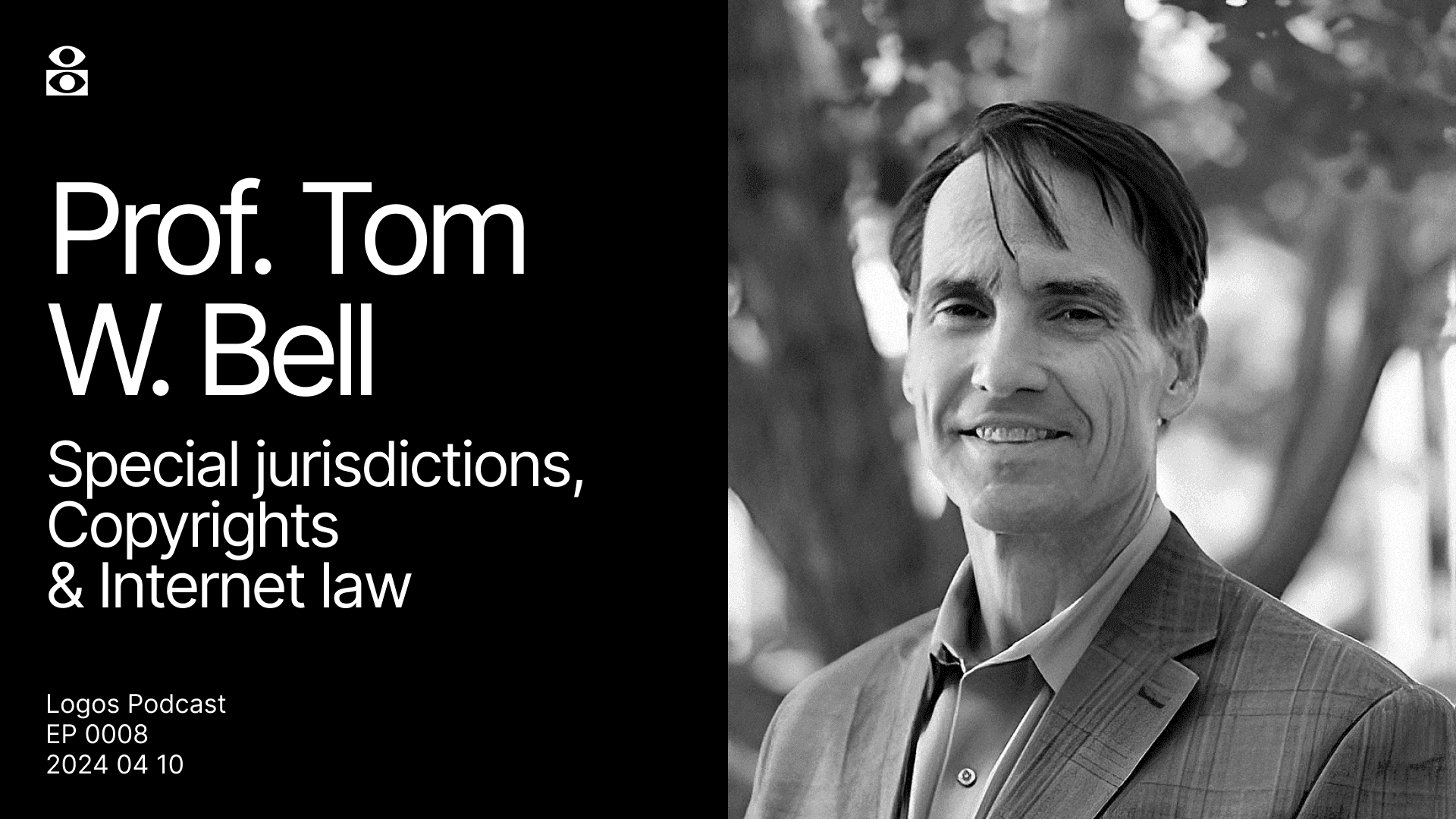

Prof. Tom W. Bell: Special Jurisdictions, Copyrights & Internet Law
In the episode, Jarrad Hope talks to Professor Tom W. Bell about the process of shifting from traditional nation-states to more flexible, innovative, specialized jurisdictions. They also dive into the practical mechanisms for establishing such jurisdictions, the importance of foundational legal systems like Ulex, and the challenges posed by traditional copyright hindrances. Overall, Tom and Jarrad reflect on the need for resilient and adaptive models that can withstand the challenges of the future while promoting human flourishing and the benefits of technology like blockchain in achieving these aims.
Reading materials from the episode:
- The Forecast for Anarchy, in Routledge Handbook of Anarchy 309-34 (Gary Chartier & Chad Van Schoelandt, eds.; Routledge: 2021)
- Distributed Self-Government in Protocol Communities: An Introduction and Index of Examples, 25:2 Independent Review 293 (Fall 2020
- Ulex: Open Source Law for Non-Territorial Governance, 1 J. of Special Jurisdictions 1 (2020), available at https://ssrn.com/abstract=3605807 on SSRN or from the source: https://journalofspecialjurisdictions.com/index.php/jsj/article/view/12/9
- "Intellectual Privilege: Copyright, Common Law, and the Common Good" (Mercatus Center 2014)
Jarrad Hope
Great. Well, I mean, it's a pleasure to to speak with you, Tom or Professor Bell. I first got exposed to to your book, Your Next Government many years ago and was enamored by many of the concepts that that you presented and argued for it in there. And I don't know if you probably wouldn't recall, but many years ago, I ended up emailing you about your
Tom Bell
Okay.
Jarrad Hope
And thinking about how to implement this in smart contract form, or at least the sort of arbitration aspect of it. And I've been using these ideas to try and design a political system around, you know, these public programable blockchains as well. So yeah, I just wanted to talk about these and your ideas around copyrights. And yeah, I've used these points in some of my talks as well, but maybe you'd like to introduce yourself and tell us
Host - Jarrad Hope
Produced and edited by Christian Noguera